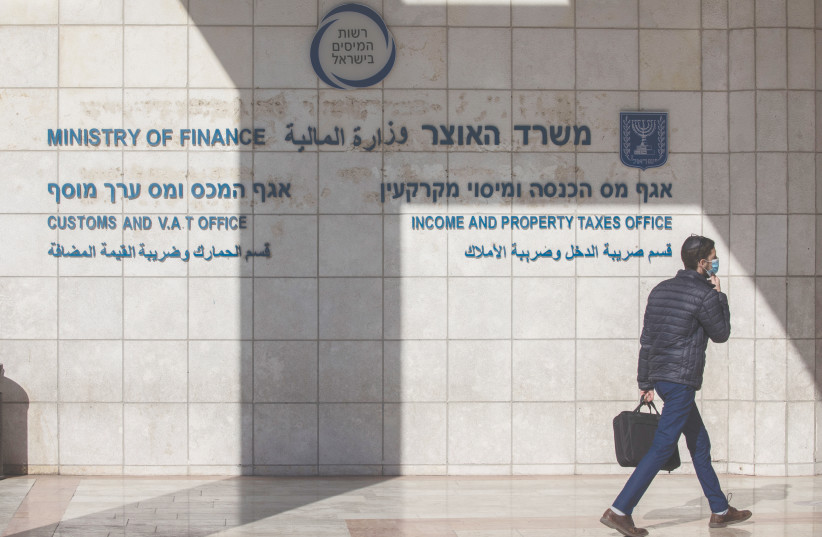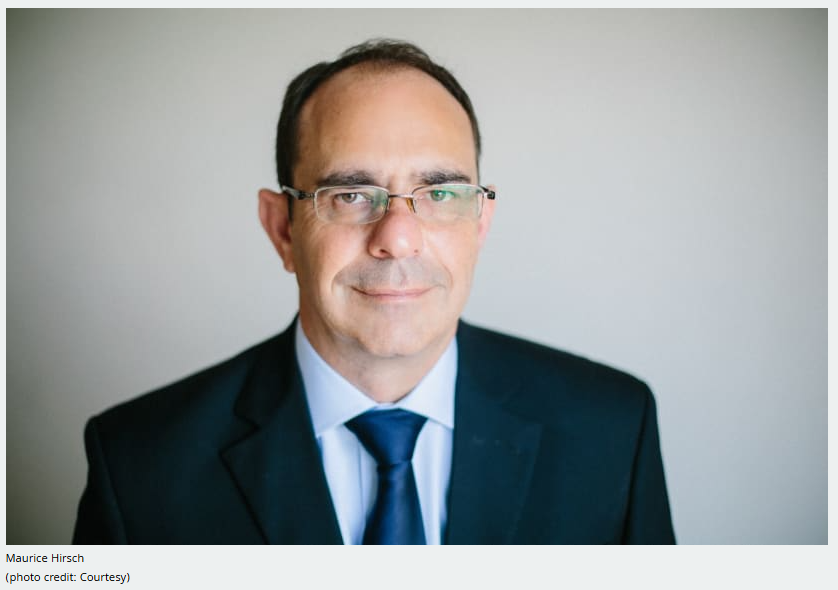A complex system causing losses to Israeli economy
According to Hirsch, the tax mechanism between Israel and the Palestinian Authority operates across four main categories: import taxes, excise duties, VAT, and income tax.
Each category, Hirsch elaborated, functions under unique arrangements that often deviate from standard international practice, as Israel pledged to transfer funds earned in these categories to the Palestinian Authority instead of keeping them as is customary around the globe.
Hirsch stressed that between 1967 and 1993, Israel collected these taxes to its own treasury in accordance with international law. “We willingly relinquished these rights to advance the Oslo Accords’ peace objectives,” he explained. “The intention was to look forward, to build peace between our peoples. Instead, these funds have become a source of ongoing conflict.”
When asked how exactly this system works, Hirsch elaborated: “Take the VAT system, for instance. When a Palestinian purchases goods in Israel, they submit invoices to Palestinian tax authorities for reimbursement. Likewise, regarding import taxes, goods arriving at ports like Ashdod, which are destined for the Palestinian Authority, will be paid to Israel, which will then transfer the funds onwards to the PA.
However, these arrangements are also a hotbed for many challenges. “Some of these goods often never make their way to the PA and would disappear into the Israeli market to be sold there,” Hirsch noted.
“This means import taxes are being paid to the PA for goods that actually end up in Israel, which in turn leads to a loss of hundreds of millions of shekels monthly.
In the same context, the VAT system creates a distorted incentive for the PA to encourage purchases in Israel and exploit the reimbursement mechanism, obstructing the development of the Palestinian economy independently.”
Tax money funding terror
However, issues arising from the tax apparatus don’t stop on the economic level. “According to studies, these tax transfers constitute approximately 65% of the PA’s total revenue.
In other words, in accordance with the Palestinian pay-for-slay laws, for every 100 shekels paid by the PA as a stipend to a terrorist or their family, 65 shekels originate effectively from Israel. And the same applies to their actions against Israel on the international stage, which are largely funded by Israeli-collected taxes, supposed to be owned by Israel to start with.”
Hirsch explained that he and his team are now lobbying in the Knesset for a legislative piece that tries to make some sense from this distorted reality, which orders that any funding for legal representation costs of Al-Qassam militants who participated in the October 7th Massacre would be reduced from tax funds.
“Since October 7, the Public Defender’s Office announced that it is not interested in representing these terrorists, leading courts to appoint private defenders,” he explained. “This raises a crucial question: how can victims of terror fund with their tax money those who perpetrated the worst imaginable acts of terror against their loved ones?”
The proposed legislation, Hirsch elaborated, would deduct the amount of tax transferred to the PA to cover these legal costs, based on the PA’s own legislation. “Palestinian Authority law commits to providing monthly salaries and covering any legal needs of those terrorists, deemed by law as ‘the fighting sector of the Palestinian people.’ This would mean an end to the absurd reality of Israel indirectly paying for the terrorists’ salaries.”
Hirsch’s response was unequivocal when asked whether a larger reform is needed. “We need to fundamentally reassess this entire arrangement,” he said.
“We wanted to ‘buy peace’ with these financial arrangements, and we’re paying the full price and are fully committed to our side of the agreement, but not only is peace not materializing – these funds are being used to finance terrorism!”
Hirsch’s proposed solution is straightforward: present a clear ultimatum. “Either the PA stops paying stipends to terrorists and ceases legal actions against Israel in international forums, or the transfers stop.
“Israel agreed to forgo these taxes to buy peace,” Hirsch stated again. “When that’s not what we’re getting. This is basic consumer logic: you don’t keep paying for a product you’re not receiving.”
Drawing an unexpected parallel, Hirsch compared the situation to basic parenting principles. “Any parent knows that if there are no consequences for negative behavior, that behavior will continue,” he explained.
“By continuing this arrangement we’re practically sending the PA the message that they can continue to support terrorism while we continue providing financial support.”
Perhaps most surprising is how little attention this issue has received until now. “There hasn’t been a comprehensive analysis of this issue, especially in Hebrew,” Hirsch concluded.
“Very few people, even in the Finance Ministry, fully understand how this process works. Most people simply accept the narrative that this is ‘Palestinian money,’ without understanding the complex reality behind these transfers, and knowledge would be the first step to fix this wayward reality.”




